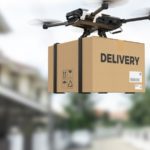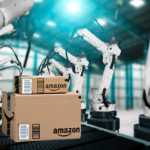Amazon has officially resumed its Prime Air drone delivery service in Texas and Arizona, following a two-month suspension due to technical concerns with altitude sensors in its MK30 drones. The e-commerce giant took this precautionary measure after identifying potential inaccuracies in sensor readings caused by airborne dust particles.
The resumption marks a significant milestone for Amazon’s ambitious drone delivery program, which operates in test markets in College Station, Texas, and Tolleson, Arizona. The company aims to achieve 500 million annual package deliveries by 2030, demonstrating its long-term commitment to autonomous delivery solutions.
David Carbon, who leads Amazon’s drone program, reported “unprecedented levels of demand” since operations resumed. In a notable example shared on LinkedIn, a drone successfully delivered ZzzQuil sleep medicine to an Arizona customer in just 31 minutes and 30 seconds, showcasing the system’s efficiency.
The temporary suspension followed technical challenges during test flights. Amazon experienced multiple incidents involving its MK30 drones, including software-related crashes and a mid-air collision during propeller failure testing.
While these incidents raised concerns about the safety and reliability of the drone program, Amazon stated that the decision to pause customer drone delivery operations was unrelated. Instead, the company attributed the pause to planned software updates aimed at improving overall system safety.
Before resuming service, Amazon implemented necessary software updates and secured approval from the Federal Aviation Administration (FAA). The company’s proactive approach to safety demonstrates its commitment to maintaining high operational standards in autonomous delivery systems.
The MK30 drone model represents Amazon’s latest advancement in delivery technology, featuring improved capabilities such as reduced noise levels and the ability to operate in light rain conditions. These enhancements address both technical requirements and community concerns about operational impact.
The successful restart of Prime Air operations positions Amazon at the forefront of commercial drone delivery innovation. As the company continues to refine its technology and address community feedback, its progress will likely influence the broader adoption of autonomous delivery systems across the retail industry.
This development represents a crucial step forward in Amazon’s vision for revolutionizing last-mile delivery, despite the technical challenges faced during the program’s evolution. The company’s ability to overcome these obstacles while maintaining safety standards sets an important precedent for the future of autonomous delivery services.
News Source: CNBC








